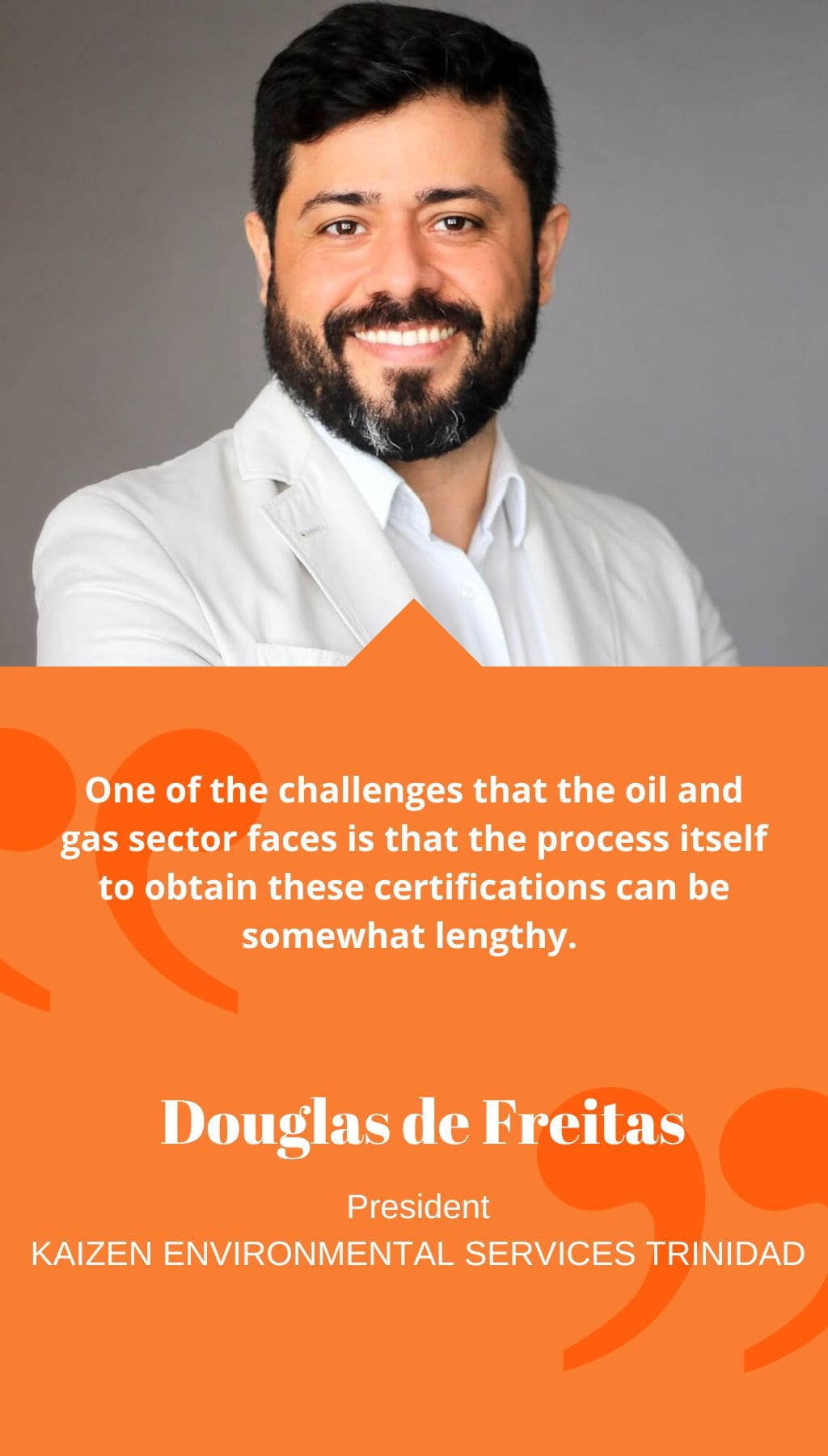
- Trinidad & Tobago | 19 June 2013

Can you tell us about the original vision behind the founding of Kaizen Environmental and how it has evolved over time?
The aim of Kaizen Environmental was always to develop a full-service environmental company that could cater to the entire Caribbean region. Initially, we started out offering waste management services and bioremediation. Since then, we have expanded into areas of complete hazardous waste management services, drilling waste management, and a full suite of consulting and contracting services.
How have you seen environmental standards evolve in Trinidad and Tobago as they become increasingly stringent around the world?
Environmental standards in Trinidad and Tobago have not changed significantly over the past few years. However, the international risk and requirements for due diligence have changed more significantly. Nowadays, any of the major players have environmental and safety management programs that are quite clearly defined and listed in their public literature. As a result, they can and are held accountable to those processes. In most cases, they are quite stringent with the targets they place for themselves. Their standards have evolved over time, and the country has kept up with them.
As the oil and gas industry in Trinidad and Tobago looks to enter a new phase of its 104-year history, are companies interested in investing and maintaining environmental standards?
Companies that are starting up operations in Trinidad and Tobago have no choice but to invest in the highest standards. The regulatory process that governs the industry today requires a CEC and an Environmental Impact Assessment (EIA). This is a good system with strong processes that require any startup operation to present a case for the initiation of their activities. Various programs have been put into place through peer reviews and professional reviews to establish the necessary steps for proper environmental stewardship. One of the challenges that the oil and gas sector faces is that the process itself to obtain these certifications can be somewhat lengthy. In today’s marketplace, investors do not have the patience to wait, and they will move from Trinidad and Tobago to somewhere else if it will provide better returns in a timelier manner. If environmental accreditation takes too long, then, the entire operation can be put into jeopardy.
In terms of existing operations, the industry is becoming increasingly aware of its risk and exposure. The issue of ‘what we did yesterday and what we do today may not work tomorrow’ is one that boards and the management of companies are becoming more aware of. This is a turning point not just in Trinidad and Tobago, but globally. Companies can no longer continue to operate freely simply on the grounds of providing employment in the country; they must take responsibility for the operations that supply those jobs.
There has been a noted downturn in production in Trinidad and Tobago in recent years, but recent and upcoming bidding rounds point towards a reversal of this trend. How is this affecting companies such as Kaizen Environmental?
We are certainly preparing for an upturn in the industry and do expect to see increased business as the bid rounds happen. Time and again, however, in different parts of the world, the service industry gears up to support a certain initiative, and if the economics of the program do not work, then the operators cease to pursue it, and the service sector is left with an investment in infrastructure and nowhere to apply it. It is called exploration because it is a risk for everybody, so we are cautiously optimistic about things and are being careful about overexposing ourselves.














